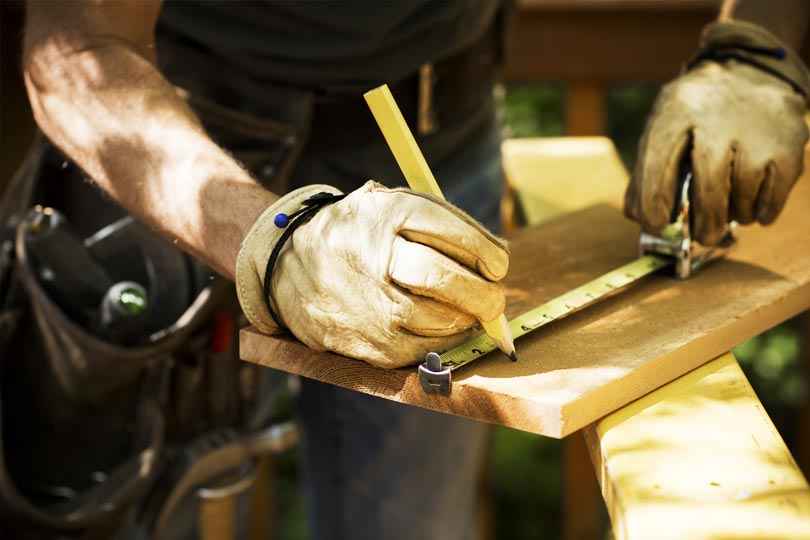Using The Right Kind Of Loan To Build Your Home

Not all mortgages are alike, and the nature of the purchase often dictates the type of loan you get. For example, building a house on land you own (or purchase as part of the project) would require a single-close construction loan.
But not always. For some types of construction projects, you would use a different type of home loan. One-Time Close construction loans are typically approved for projects where the borrower hires a contractor. Some want to know if they can do their own building work, or have their friends and family help.
But in typical cases, the answer may be no to those questions. In such circumstances, you would need to apply for a different type of mortgage called an owner-builder loan.
Not everyone may qualify for an owner-builder loan since the burden of proof is on the applicant to show they have sufficient expertise to act as their own builder or contractor. When applying for an owner-builder loan you may be required to show proof of that experience including whatever credentials and licensing you may have in your state.
It may be up to the lender’s discretion to approve or deny this type of loan based on your qualifications to do the work or oversee it being done.
Why can’t you be your own builder with a One-Time Close loan? The simplest answer is that these loans require a strict schedule for completion and there is no provision for the work being done on a half-time basis or on a slower completion timetable.
Borrowers who do their own construction work are likely to take more time completing the project due to other commitments, and it’s not in the lender’s interest to permit these slower completion rates.
In general, for a One-Time Close construction loan, whoever does the work is required to carry permits, have current insurance, and must commit to a fixed schedule for completion of each phase of the construction project including laying the foundation, framing the house, installing the electrical systems, etc.
It should be noted that these rules are specifically for construction loans and may not apply to rehabilitation loans for fixer-uppers, or to loans where it is expressly agreed that the borrower will act as the general contractor when applying for an owner-builder loan. The rules for each of these different loan types may vary, not only between programs but also between individual lenders.
Want More Information About One-Time Close Loans?
We have done extensive research on the FHA (Federal Housing Administration) and the VA (Department of Veterans Affairs) One-Time Close Construction loan programs. We have spoken directly to licensed lenders that originate these residential loan types in most states and each company has supplied us with the guidelines for their products.
We can connect you with mortgage loan officers who work for lenders that know the product well and have consistently provided quality service. If you are interested in being contacted by a licensed lender in your area, please send responses to the questions below. All information is treated confidentially.
OneTimeClose.com provides information and connects consumers to qualified One-Time Close lenders to raise awareness about this loan product and to help consumers receive higher quality service. We are not paid for endorsing or recommending the lenders or loan originators and do not otherwise benefit from doing so. Consumers should shop for mortgage services and compare their options before agreeing to proceed.
Please note that investor guidelines for the FHA and VA One-Time Close Construction Program only allow for single-family dwellings (1 unit) – and NOT for multi-family units (no duplexes, triplexes or fourplexes). In addition, the following homes/building styles are not allowed under these programs: Kit Homes, Barndominiums, Log Cabin Homes, Shipping Container Homes, Stilt Homes, Solar (only) or Wind Powered (only) Homes.
Contact Us: Send Us Your Request – Spam Safe
Please send your email request to [email protected] which authorizes OneTimeClose.com to share your personal information with one mortgage lender licensed in your area to contact you.
1. Send your first and last name, e-mail address, and contact telephone number.
2. Tell us the city and state of the proposed property.
3. Tell us your and/or the Co-borrower’s credit profile: Excellent – (680+), Good - (640-679), Fair – (620-639), or Poor- (Below 620). 620 is the minimum qualifying credit score for this product.
4. Are you or your spouse (Co-borrower) eligible veterans? If either of you is an eligible veteran, down payments as low as $0 may be available up to the maximum amount your debt-to-income ratio per VA will allow – there are no maximum loan amounts as per VA guidelines.
Most lenders will go up to $1,500,000 and review higher loan amounts on a case-by-case basis. If not, the FHA down payment is 3.5% up to the maximum FHA lending limit for your county.
Do you know what's on your credit report?
Learn what your score means.

July 26, 2024The Federal Housing Administration (FHA) offers qualifying borrowers the option to build a home from the ground up using a Single Close FHA Construction Loan. This program, also known as a One-Time Close construction mortgage, allows borrowers to finance the construction of a new home and convert it into a permanent mortgage with just one closing, streamlining the often complex process of building a house.
July 19, 2024VA One-Time Close construction loans help qualifying veterans build homes they will own and occupy once the construction phase is complete. One-time close loans, or construction-to-permanent loans, combine construction and permanent financing into a single closing procedure. VA One-Time Close mortgages have no VA-required down payment or mortgage insurance, making them attractive options for qualifying borrowers.
July 12, 2024When planning a construction loan, you have many options. For example, do you want to buy land with a loan to build the house? Or do you already own a parcel suitable for the construction project? There are many other choices to make with home loans, but some don’t necessarily apply to construction mortgages.








